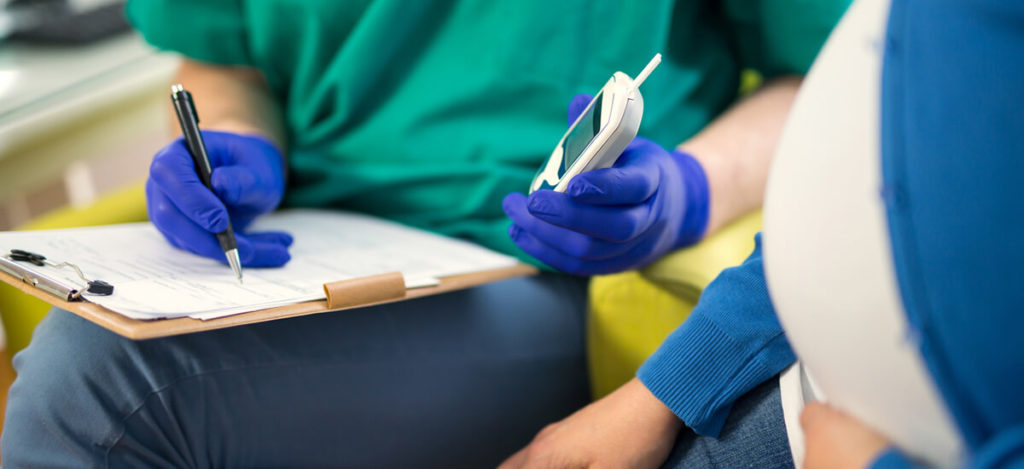The accrual of data from the laboratory and from epidemiologic and prevention trials has improved the understanding of the etiology and pathogenesis of type 1 diabetes mellitus (T1DM). Genetic and immunologic factors play a key role in the development of T1DM, and characterization of the early metabolic abnormalities in T1DM is steadily increasing.
However, information regarding the natural history of T1DM remains incomplete. The TrialNet Natural History Study of the Development of T1DM has been designed to clarify this picture, and in so doing, will contribute to the development and implementation of studies aimed at prevention of and early treatment in T1DM.
Purpose:
TrialNet is an international network dedicated to the study, prevention, and early treatment of type 1 diabetes. TrialNet sites are located throughout the United States, Canada, Finland, United Kingdom, Italy, Germany, Australia, and New Zealand. TrialNet is dedicated to testing new approaches to the prevention of and early intervention for type 1 diabetes.
The goal of the TrialNet Natural History Study of the Development of Type 1 Diabetes is to enhance our understanding of the demographic, immunologic, and metabolic characteristics of individuals at risk for developing type 1 diabetes.
The Natural History Study will screen relatives of people with type 1 diabetes to identify those at risk for developing the disease. Relatives of people with type 1 diabetes have about a 3 to 4 percent chance of being positive for the antibodies associated with diabetes. TrialNet will identify adults and children at risk for developing diabetes by testing for the presence of these antibodies in the blood. A positive antibody test is an early indication that damage to insulin-secreting cells may have begun. If this test is positive, additional testing will be offered to determine the likelihood that a person may develop diabetes. Individuals with antibodies will be offered the opportunity for further testing to determine their risk of developing diabetes over the next 5 years and to receive close monitoring for the development of diabetes.
Official Title
Conditions
Study Type
Observational
Study Design
Natural History, Longitudinal, Defined Population, Prospective Study.The Natural History Study is conducted in three phases:Phase 1: Screening Phase 2: Baseline Risk Assessment Phase 3: Follow-Up Risk Assessments In Phase 1 (Screening), a simple blood test is done to screen for the presence of diabetes-related biochemical autoantibodies (GAD, ICA-512, MIAA). Islet cell autoantibodies (ICA) are also measured in individuals positive for one or more biochemical autoantibodies. Participants can go to a TrialNet Clinical Center, Affiliate, or request a screening kit to have their blood drawn by a local physician or laboratory. Participants will be provided with their screening results within 4-6 weeks. If autoantibodies are present initially and are confirmed by repeat testing, participants will be invited to have additional testing in Phase 2 (Baseline Risk Assessment) to determine their risk of developing diabetes over the next 5 years (less than 25% risk, 25% – 50% risk, or greater than 50% risk). The baseline risk assessment will include an Oral Glucose Tolerance Test (OGTT), re-testing for biochemical and islet cell autoantibodies if needed, measurement of HbA1c, and HLA (genetic) typing. In certain cases, a 20 minute Intravenous Glucose Tolerance Test (IVGTT) for First Phase Insulin Response (FPIR) will also be performed. Phase 3 Risk Assessment includes many of the same tests to monitor you for possible progression towards type 1 diabetes. Participants in the Natural History Study may be offered the opportunity to enter into prevention or early treatment studies as these become available.
Further Details
Study Start
February 2004; Expected completion: June 2008
Eligibility & Criteria
Ages Eligible for Study: 1 Year – 45 YearsGenders Eligible for Study: Both Accepts Healthy VolunteersCriteria:Inclusion Criteria:- Individuals 1 to 45 years old who have an immediate family member with type 1 diabetes (such as a child, parent, or sibling) – Individuals 1-20 years old who have an extended family member with type 1 diabetes (such as a cousin, niece, nephew, aunt, uncle, grandparent, or half-sibling) Exclusion Criteria:To be eligible a person must not:- Have diabetes already – Have a previous history of being treated with insulin or oral diabetes medications. – Currently be using systemic immunosuppressive agents (topical and inhaled agents are acceptable) – Have any known serious diseases
Total Enrolment
75000
Contact Details
Australia, VictoriaWalter and Eliza Hall Institute, Parkville, Victoria, 3050, Australia; Recruiting Leonard Harrison, M.D. +61-3-93452555 harrison@wehi.edu.au Fiona Williams, MPH +61-3-93452555 fiona.williams@mh.org.au
All content and media on the HealthEngine Blog is created and published online for informational purposes only. It is not intended to be a substitute for professional medical advice and should not be relied on as health or personal advice. Always seek the guidance of your doctor or other qualified health professional with any questions you may have regarding your health or a medical condition. Never disregard the advice of a medical professional, or delay in seeking it because of something you have read on this Website. If you think you may have a medical emergency, call your doctor, go to the nearest hospital emergency department, or call the emergency services immediately.







